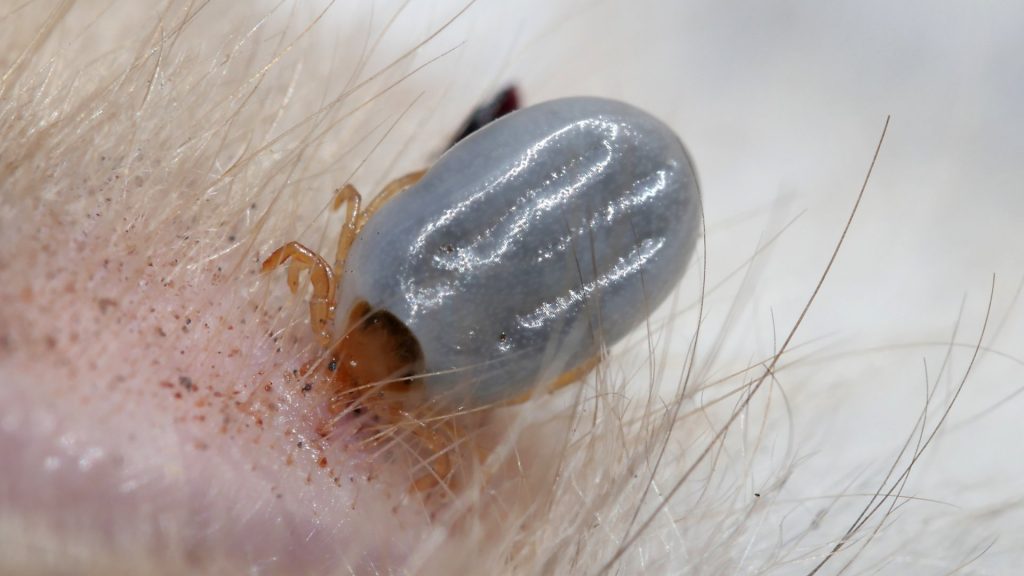Tick season is in full swing here on the Gold Coast. However, don’t let that fool you as ticks can be a year-round health threat to our fur babies. We have been seeing a steady rise in tick cases recently due to the warmer weather and we felt this was a timely reminder to inform you about this deadly parasite.
The Australian Paralysis Tick, Ixodes holocyclus, is found in the bushy coastal regions of Eastern Australian and is a parasite most likely to affect native mammals, livestock and pets. Though sometimes even humans can become affected.
Paralysis ticks can attach on any area of your pet; however, they are more likely to attach on the front half of your pet. The tick’s saliva contains a toxin that causes muscle weakness which then leads to paralysis. The tick usually needs to feed for 1-2 days before symptoms appear. Paralysis usually starts in the hind limbs and then moves up the body which can then affect the animal’s ability to breath, but paralysis can occur in any part of the body at any time.
Common symptoms of tick paralysis:
- incoordination
- weakness especially in the back legs
- Inability to stand or walk
- Vomiting/retching
- Change of bark or meow
- Difficulty breathing
If ticks are attached close to the eyes, they can cause the eyelids to stop blinking which could dry out the eyes causing damage. Another thing to be aware of is the toxin also affects the animal’s ability to swallow which could predispose them to pneumonia. Tick paralysis is progressive and potentially fatal and should be treated as soon as the animal shows symptoms of tick paralysis. The longer that the pet is without treatment the harder it is to treat the paralysis. If you find a tick on your pet pull it off straight away and call your local vet clinic. If your pet is showing any signs of tick paralysis your pet will need to be treated in hospital via an IV drip.
- Of course, if there is one tick, there could be another one so don’t stop searching them!
- Clipping your dog or cats coat short, especially during tick season, makes performing tick searches much easier.
- The good news is this disease is totally preventable!
- Please call us today on 0484 613 668 so Dr. Kerri can make sure your pet is properly protected against this deadly parasite.


